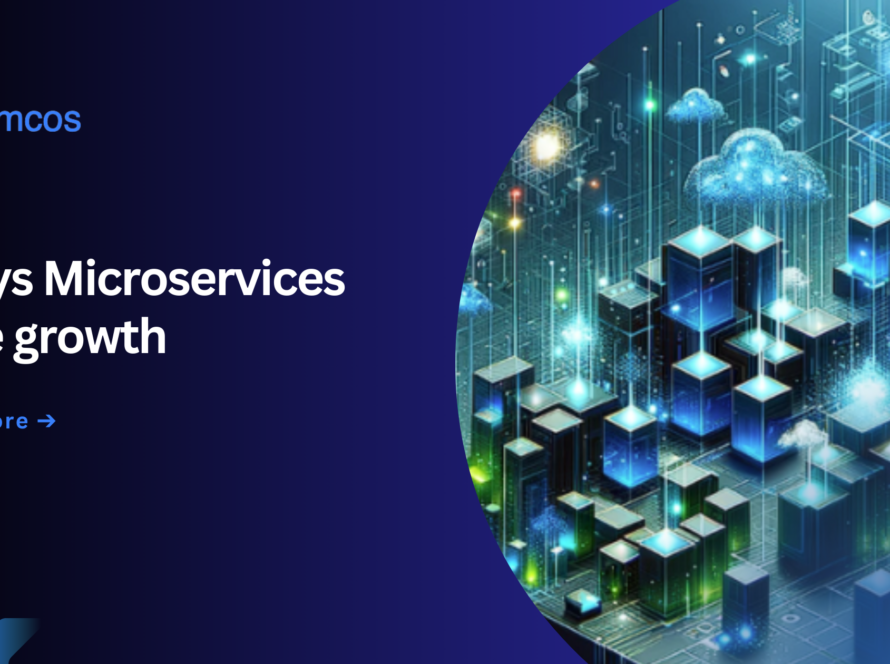Cloud based Data warehousing that stores and do the analytics capability as well. Snowflake is a cloud data platform, which offers storage and analytic services on top of AWS infrastructure. Snowflake Consulting services is a cloud based software and hardware that enables corporate users to store, serve data for use. Snowflake has now become a game changer with storage and management of data. Snowflake scales very well and efficiently handle massive data size with amazing flexibility. It enables organisations to efficiently process diverse data workloads and is scalable and secure.
Snowflake is another platform that handles structured as well semi-structure data and supports JSON, Avro or Parquet formatted files. With SQL based querying and slightly more user friendly interface than BigQuery, its something for everyone starting with data analysts to developers who love using snowflake. In addition, its Secure Data Sharing capability enables organizations share live data with no duality.
Snowflake also uses advanced functionality, such as Time Travel and Zero-Copy Cloning for optimized data replication. These capabilities combined with multi-cloud support in AWS, Azure and Google Cloud ensure organisations have a performant scalable flexible approach to data management that ensures more efficient economic operation of an organization as output.
Table of Contents
Role of Snowflake Consulting Service
Snowflake consulting services play a important role in supporting firms to navigate the new era of business management and data analytics. Based on their broader, in-depth knowledge of the field consultants also design bespoke strategies to implement and enhance snowflake by keeping goals met while remaining compliant with an organization aims, priorities objectives.
Consultants are snowflake performance experts who specialise in maximising value on the customer side. We optimize configurations, tune SQL queries to work efficiently and consistently! Security & ComplianceWe take security and compliance very seriously, each of our consultants meticulously evaluates the level of such risk factors analyzes access controls& Encryption mechanisms implemented in conjunction with detailed audit trails provided by default. This keeps their data secure and allows them to stay compliant.
History
Benoit Dageville, Thiery Cruanes and Marcin Zukowsky founded Snowflake in 2012 The company revolutionized the way that data is stored in 2014 with its proprietary cloud-based data warehousing platform. The company went public in 2020 and had the largest software IPO of all time and still innovating data management, analytics.
What are the Traditional Datawarehouses?
A data warehouse is not your typical transactional database; instead, it describes specific types of databases that store and manage large volumes of structured (i.e., organized in rows and columns) data from many disparate sources. Typically, they are located on-premise and run with a hardware + software combination that is customized to save/bring up information in addition to doing processing work. These systems are very accesible for read-heavy operations, enabling queries of extreme complexity and analysis as typically done with business intelligence (BI) tools.

Limitations of Traditional Datawarehouses
a) Scalability issues
It takes a significant amount of hardware to scale traditional data warehouses. As data scales, so does its hardware- and server-footprint: powerful but expensive complex and time-consuming. This makes it also hard to forecast future capacity demands. The other thing — as the size of your data grows, query performance degrades and makes it hard to get insights fast.
b) Data integration and ETL complexity
Data cleaning processes are laborious and intricate. It needs custom scripts and manual interventions. In Old warehouses all ETL jobs run in batch that leads to the delay of data availability and real-time integrations become a nightmare. The attribution: integration of third party data.
c) Maintenance issues
Traditional data warehouse management requires complex indexing, partitioning and tuning that you perform to improve the performance. Some typical maintenance activities such as back up, recovery and security management need expert staffs to do them. This is proven to be time-consuming and costly in the long run.
d) Lack of real time processing
Streaming data from IoT devices, social media etc are normal business operations that need to be processed and analysed in real-time. Traditional data warehouses are simply not equipped to keep up with constant high speed streams of real time produced records. The limitation with this approach is that there will be latency between the time when a transaction happens in business application and gets replicated into Hana system which prevents us from analysing real-time data for fast decision making under highly competitive market dynamics.
e) Cost concerns
Creating an in house data warehouse is expensive, you have to buy the gear and software licences upfront — plus infrastructure. Repair — This applies to hardware replacements and upgrades, contributing further to the long-term costs. They also incur costs for power, cooling and physical security.
Emergence of Snowflake
Snowflake is a software platform that had its own story, one which weaves the new of technology together with addressing 21st Century enterprise data requirements. Founded in 2012 by veterans of the leaders in data warehousing, it is not an exaggeration to say that Snowflakes has taken the cloud-based data market — and thus how modern enterprises provide their potentially most valuable asset: Data.

Unique Features of Snowflake
• Time travel
Time travel is another feature available in snowflake. Just like a deleted file, time traveling allows you to query data at any given time within some retention period which is from 0–90 days typically and depends upon the plan of coverage opted by anyone for use with SnowFlake. Time Travel is accomplished by saving historical data and metadata. These features make it possible for users to query data at different points in time without having to restore backups.
• Zero copy cloning
Zero copy cloning enables you to instantaneously create a lightweight clone of any production or nonproduction database, scheme and table without making physical copies at data level. Snowflake achieve this by creating a metadata reference to the original data which makes it look like separate entity however no additional storage is consumed for cloning.
• Automatic query optimisation
Snowflake optimizes queries automatically to make query performance be high. This capability of snowflake is possible with the separation of compute and storage. Each query is automatically assessed by Snowflake’s optimiser, which determines the most efficient way to execute a given task. This cuts down many hours and helps in boosting efficiency a lot.
• Compute and Storage are Independent
Snowflake comes with the architecture that is compute and storage separation which solves scale out horizontally across multiple virtual servers based on workload requirement. The data stored in a scalable, distributed storage layer independent from the compute resources. Virtual warehouses These are compute resources that process queries / workloads and run SQL operations.
• Automatic query caching
Snowflake caches commonly executed queries automatically in which helps them to run faster after the first execution. This feature directly results in the query running at an incredibly faster rate, which ultimately saves time and helps to analyze data quickly. Since there TSYS Systems Compatible IP Block is a virtual warehouse, users allocate as many compute resources on that device and scale up or down based simply on their needs.
Need for specialised expertise/skills to manage Snowflake
Huge demand of Snowflake Consulting Services for those companies, who is planning to use snowflake as Data Management Platform What really makes Snowflake powerful is its architecture and scalability. It is user-friendly, but managing this cloud data warehouse successfully needs expertise. It is a complicated matter as these come under features such as virtual warehouses, data sharing and security.
To get the most out of Snowflake’s columnar storage on a budget, and efficiently scale resources as needed means mastering SQL & Cloud computing respectively. Specialists who know how to do their job provide secure and efficient data storage, free of interoperability issues or performance bottlenecks, taking full advantage of Snowflake capabilities in the post-analysis phase. A few of the primary reasons are —
➤ Complex Data Integration
However, the be able to deal with a wide range of data types and sources also makes Snowflake complex in terms fo managing them as part of your bigger integration workflow. Expertise — for designing and developing complex ETL/ELT processes, as well as integrating Snowflake with a range of data sources to guarantee end-to-end scalability in order enable the continuous movement of large volume datasets without any deterioration on quality nor integrity. Therefore, experienced datascientists who understand the dynamics of data ingestion, transformation and loading are able to build better efficient pipelines based on business needs as well as compliance standards.
➤ Advanced Analytics
Optimally taking advantage of Snowflake advanced analytics capabilities would no doubt need specific expertise in specialised areas to garner meaningful insights from huge chunks of data. This involves the ability to design and write complex analytical queries, do predictive modelling, create data-driven solutions providing extensive knowledge of SQL as well as additional advanced concepts related to statistical analysis techniques along with database architecture. Businesses that are able to extract insights from their data assets deliver production advantages by making better decisions and offering a deeper strategic edge in today’s information economies.
➤ Optimised Performance
Snowflake also requires management that squeeze out the best performance with less resource usage per query processing. In comparison, skilled pros will fine-tune configurations (including practices setup), utilise more advanced features such as automatic clustering and query optimisation to make sure the pipeline is reliable & fast enough. This kind of expertise is very important if you want to take all possible advantage from the platform and get a final optimized interface performance, because in most cases such things takes place in complex or high-load data environment where even smallest trouble shooting gives major cost-effectiveness effect on whole system power.
➤ Security and Compliance
As with any other service, the administration of Snowflake requires measures for security and it specializes in the implementation and monitoring even more complex controls to prevent data from becoming exposed/in breach or failing audits. Knowledgeable experts know the best security standards, encryption strategies and access control directives to protect information from unauthorised leaks, breaches and compliance infringements. This experience allows them to custom design robust security policies in accordance with the company and enforce the same which helps reduce corporate risks; confidentiality, integrity and availability of data placing these professionals as anchors for best secure practices.
What Does the Future of Snowflake Look Like & The Growing Demand for Snowflake Consulting Services?
The future for Snowflake looks bright, with an abundance of precedent changes in the data landscape pushing things into their favour. A: The first reason is the growth of data volumes in an exponential way and this demands scalable and efficient database management solutions like Snowflake. With companies producing large amounts data from multiple sources, there is an anticipated increase in the requirement of cloud-based warehouses with built-in analytics functionalities.
In addition, the growing use of artificial intelligence (AI) and machine learning (ML) technologies provides an even stronger reason for a solid data infrastructure. The extensibility of Snowflake to collaborate with AI/ML tools and provide elastic compute resources make it a decoration in the cap enhance advanced analytics, predictive modelling.
The future of Snowflake is so wrapped up in this accelerating data journey thatwill likely be perceived as a tool of our time, right for the moment whenbigdata emerged from its popular adolescent stage and moved into high-school. This is why as businesses acknowledge the strategic necessity of data and analytics, they will all be relying on Snowflake – which means that not just companies but also consulting coaches for snowflakes are set to witness an explosion with SparkCognition at forefront.

How does HIMCOS help?
Himcos provides Snowflake Consulting Service. We build, deploy and optimize Snowflake to data and analytics highly available and scalable. We build modern data architectures, ensuring high-quality, accessible data. Our comprehensive data services cover every step, from on-premises data preparation to lifting, shifting, re-platforming and optimization.



